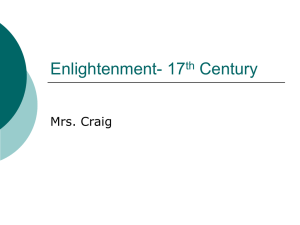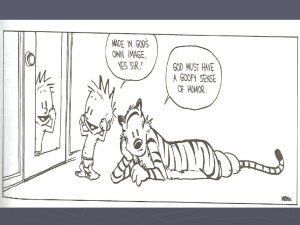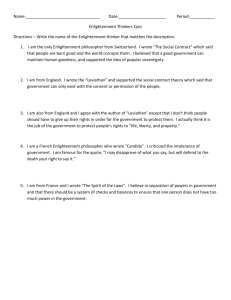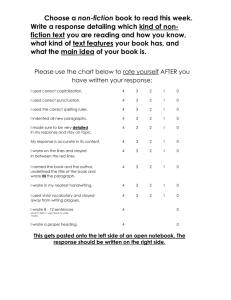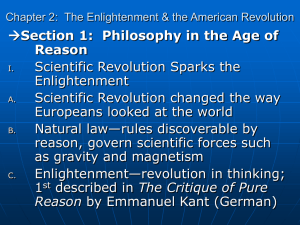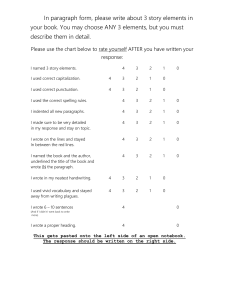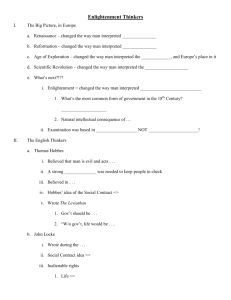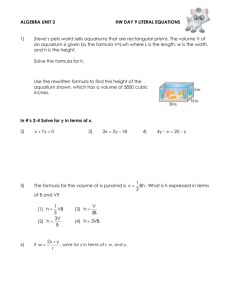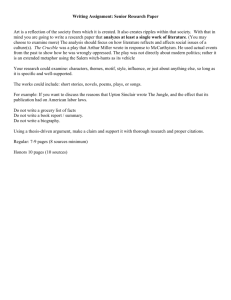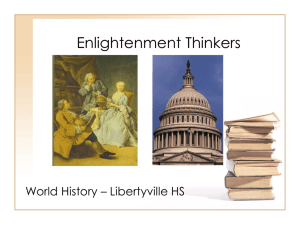Chapter 5 TEST Review
advertisement
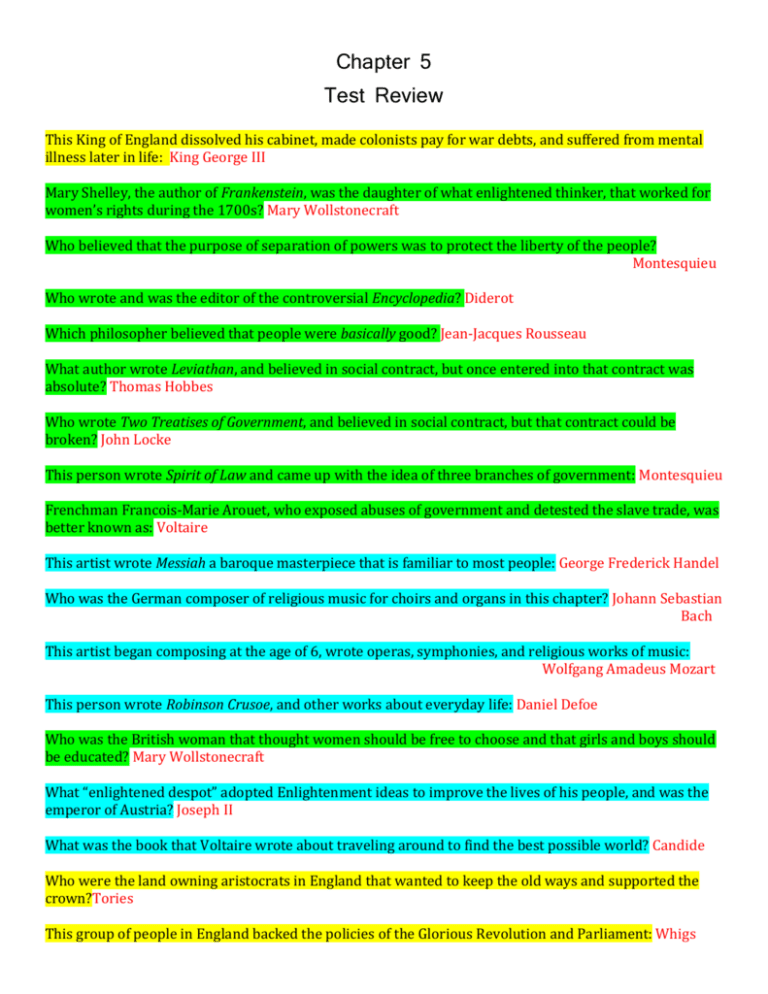
Chapter 5 Test Review This King of England dissolved his cabinet, made colonists pay for war debts, and suffered from mental illness later in life: King George III Mary Shelley, the author of Frankenstein, was the daughter of what enlightened thinker, that worked for women’s rights during the 1700s? Mary Wollstonecraft Who believed that the purpose of separation of powers was to protect the liberty of the people? Montesquieu Who wrote and was the editor of the controversial Encyclopedia? Diderot Which philosopher believed that people were basically good? Jean-Jacques Rousseau What author wrote Leviathan, and believed in social contract, but once entered into that contract was absolute? Thomas Hobbes Who wrote Two Treatises of Government, and believed in social contract, but that contract could be broken? John Locke This person wrote Spirit of Law and came up with the idea of three branches of government: Montesquieu Frenchman Francois-Marie Arouet, who exposed abuses of government and detested the slave trade, was better known as: Voltaire This artist wrote Messiah a baroque masterpiece that is familiar to most people: George Frederick Handel Who was the German composer of religious music for choirs and organs in this chapter? Johann Sebastian Bach This artist began composing at the age of 6, wrote operas, symphonies, and religious works of music: Wolfgang Amadeus Mozart This person wrote Robinson Crusoe, and other works about everyday life: Daniel Defoe Who was the British woman that thought women should be free to choose and that girls and boys should be educated? Mary Wollstonecraft What “enlightened despot” adopted Enlightenment ideas to improve the lives of his people, and was the emperor of Austria? Joseph II What was the book that Voltaire wrote about traveling around to find the best possible world? Candide Who were the land owning aristocrats in England that wanted to keep the old ways and supported the crown?Tories This group of people in England backed the policies of the Glorious Revolution and Parliament: Whigs What country became a global power in the 1700s because of its rich resources? Great Britain The Enlightenment had little effect on what group [class] of people in Europe? Peasants Thinkers during the Age of Reason challenged the established social order by calling for a just society based on what? Reason A cabinet and a Prime Minister were new features of the government in what country? Great Britain According to Hobbes and Locke, human nature was governed by what? Natural Laws Joseph II was a what because he used Enlightenment ideas to bring political and social change? Enlightened Despot A what believed that natural laws could be used to define economic systems? Physiocrat Life, liberty, and property are examples of what? Natural Rights A __________ government is one in which power is defined and limited by law. Constitutional What is it called when a government or organization restricts access to ideas and information? Censorship A what was a place for social gatherings in which artists and thinkers exchanged ideas? Salon When people agree to give up their natural state for an organized government, they are said to have entered into a what? Social Contract What were “Lovers of Wisdom” called that used reason to lead to reforms of government, law, and society? Philosophe What is a handful of Parliamentary advisers that help set policy called? Cabinet Hands Off, or a policy that allows businesses to operate without government interference is called: Laissez Faire What is a government in which the ruling power belongs to a few people called? Oligarchy This was is a grand and complex artistic style: Baroque What was the Elegant and charming style, featuring delicate shells and flowers called? Rococo What is the name for the person in Great Britain that is the leader of the Majority party in Parliament, and is the chief executive? Prime Minister What book did Adam Smith write that said a free market should be allowed to regulate business? Wealth of Nations This act brought Scotland and England together as the United Kingdom of Great Britain: Act of Union
